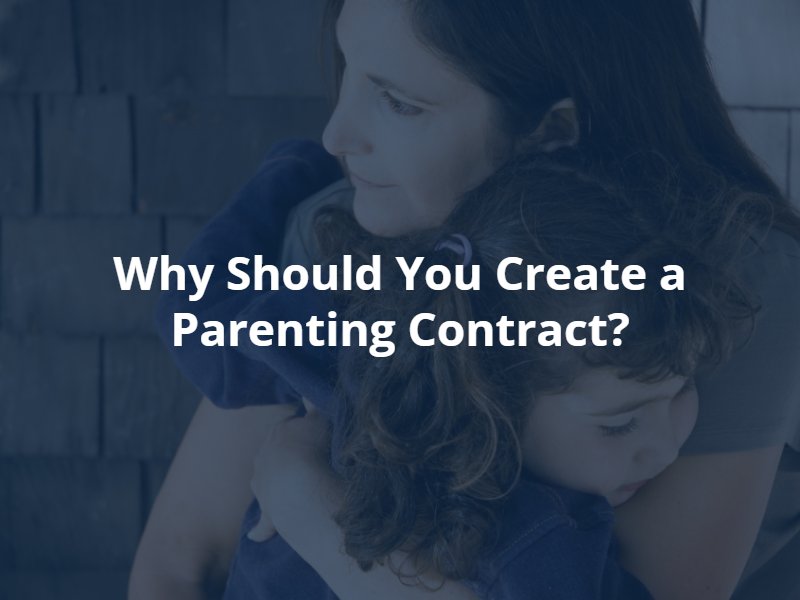Law Attorneys Get Started Today
Why Create a Parenting Contract?
Almost no couple enters into a marriage believing their journey down the aisle will end in divorce court, yet a significant number of marriages do not last until “death do us part.” One of the most appealing aspects of a prenuptial agreement is that a couple creates a contract for the possibility of a future separation while they are without resentment toward each other, still at their best in their relationship, and agree on fair terms that protect one another.

Today, some spouses with children now take that fundamental benefit of a prenuptial agreement and apply it to their family by creating a parenting contract while they are still happily married and hopeful about their family’s future together.
What is a Parenting Contract?
In most cases today, parents only consider drafting binding agreements about their children while they’re separated and divorcing. Sadly, this is the worst time to attempt an agreement that’s in their child’s best interests, since the bitterness and acrimony that’s common in divorcing couples may interfere in their judgment. Even parents with the best intentions may allow resentment toward each other and fears of losing time with their children to inhibit their ability to communicate and compromise during the process of creating a parenting agreement.
All too often, divorcing spouses are unable to come to mutually agreeable terms on their parenting plan during a contentious divorce and an objective judge must decide. Colorado courts always decide family court matters with the best interests of the children as its highest priority.
Why Choose to Create a Parenting Contract While Still Happily Wed?
Although judges always make decisions on child custody and parenting time matters to reflect the best interests of the children, it’s inarguably true that no court knows the children and their individual needs as well as their parents. When parents are open to communicating and compromising to put their children’s needs ahead of their own, they can negotiate their own parenting plan during their divorce as well as a settlement agreement for the division of their marital assets. Unless a judge has reason to believe that one parent was coerced or under duress when making the agreement, they typically sign off on the parent’s plan with the understanding that parents know what’s right for their children.
Sadly, a significant number of divorcing spouses aren’t able to reach an agreement due to the interference of conscious or unconscious resentment and hostility. But, imagine if divorcing parents already had a shared parenting plan that they created together long before their separation during a time when their marriage was still happy and they had their children’s best interests at heart?
Like a prenuptial agreement, creating a parenting contract for one future possibility does not mean that you expect the marriage to fail. Instead, it means that you are protecting your loved ones while you’re at your best and have no ill will toward each other.
Are Parenting Contracts Enforceable?
As of today, parenting contracts are not legally enforceable unless they’re presented to the judge at the time of the divorce by both parents as their divorce settlement and child custody agreement. Unlike prenuptial agreements, the court doesn’t consider a parenting contract enforceable if both parents no longer agree to it because judges uphold the children’s best interests as their highest priority.
So why create an agreement that isn’t legally enforceable? Many legal experts now argue that these agreements created while the family is still intact and have each other’s and their own children’s best interests at heart should be enforceable. There’s a strong possibility that many states may move in this direction in the near future. Also, having a fair, well-thought-out agreement on hand if spouses decide to divorce could encourage them to abide by their prior agreement rather than going through the contentious process of arguing in court. If the spouses choose to use their contract as their parenting plan after divorce, a judge is unlikely to investigate or interfere in their plan.
When talking to a family law attorney in Fort Collins about prenuptial agreements, postnuptial agreements, or estate planning, asking about the creation of a parenting contract as protection for the future is a wise choice.